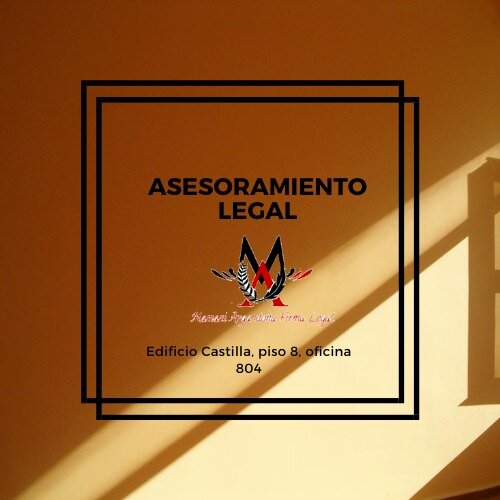Best Oil, Gas & Energy Lawyers in Bolivia
Share your needs with us, get contacted by law firms.
Free. Takes 2 min.
Or refine your search by selecting a city:
List of the best lawyers in Bolivia
About Oil, Gas & Energy Law in Bolivia
Bolivia is a country rich in natural resources, with significant reserves of oil, natural gas, and minerals. The oil, gas, and energy sector plays a critical role in Bolivia's economy, contributing to both GDP and national revenue. The industry is regulated by a complex framework of laws, policies, and regulations that address everything from exploration and extraction to environmental protection and taxation. Over the years, Bolivia has nationalized its hydrocarbon resources, giving the state a crucial role in the management and operation of these resources. Understanding these legal mechanisms is essential for anyone involved in the industry, whether they are businesses, investors, or landowners.
Why You May Need a Lawyer
There are several situations in which individuals or companies may require legal expertise in the Oil, Gas & Energy sector in Bolivia:
- Entering into contracts or agreements with the Bolivian government or state-owned companies.
- Understanding and navigating the regulatory framework for exploration, drilling, or other operations.
- Resolving disputes related to land use, royalties, and environmental impact.
- Negotiating terms and conditions for joint ventures or partnerships.
- Addressing compliance issues with local laws and regulations.
- Avoiding and managing potential litigation or arbitration.
Local Laws Overview
Bolivia's legal landscape for the oil, gas, and energy sectors is defined by several key laws and regulations:
- Hydrocarbons Law: This framework governs the exploration, exploitation, refining, transportation, and marketing of hydrocarbons. It affirms state ownership of these resources and outlines royalties, taxes, and other obligations.
- Environmental Protection Laws: These regulations ensure that energy projects comply with environmental standards to minimize ecological impact.
- Investment and Business Operations: These laws address foreign investment, protection of investors' rights, and the conditions under which businesses must operate.
- Social and Economic Agreements: Enforces agreements that involve local communities, ensuring they benefit from resource development.
Frequently Asked Questions
What is the role of YPFB in Bolivia's oil and gas sector?
Yacimientos Petrolíferos Fiscales Bolivianos (YPFB) is the state-owned company responsible for oil and gas exploration, production, refinement, and commercialization in Bolivia. It plays a pivotal role in negotiating agreements and managing resources.
Are foreign companies allowed to invest in the Bolivian energy sector?
Yes, foreign companies can invest in Bolivia, but they must comply with the local regulations and often engage in joint ventures with YPFB or other local entities.
What taxes and royalties are applicable in the Bolivian energy sector?
Companies in the sector must pay various taxes and royalties established by the Hydrocarbons Law, including a direct tax on hydrocarbons, which contributes significantly to state revenue.
How does the government ensure environmental protection during resource extraction?
Bolivia's environmental laws require comprehensive environmental impact assessments and ongoing monitoring to ensure compliance with environmental protection standards.
What are the steps to resolve a legal dispute in this sector?
Disputes are typically addressed through arbitration or litigation, depending on the agreements in place and the nature of the dispute. It's advisable to engage a lawyer specialized in Bolivian energy law for assistance.
How can community agreements affect energy projects?
Community agreements are crucial, as they ensure local communities receive benefits from resource development. Disregarding such agreements can lead to disputes and project delays.
What is the significance of the 2006 Nationalization Decree?
The decree reasserted state control over Bolivia's hydrocarbons, requiring foreign investors to enter into new contracts with the state and aligning with nationalization policies.
Is renewable energy development encouraged in Bolivia?
Yes, Bolivia is exploring renewable energy development, including solar and wind projects, to diversify its energy portfolio and reduce environmental impact.
What are the main challenges faced by the Bolivian energy sector?
The sector faces challenges such as fluctuating global prices, infrastructure limitations, and regulatory changes that require strategic planning and investment.
How can a lawyer help with compliance issues?
An experienced lawyer can guide companies through the complex regulatory framework, ensuring that their operations meet all legal requirements and avoid potential penalties.
Additional Resources
For those seeking further information on oil, gas, and energy in Bolivia, here are some helpful resources:
- Ministry of Hydrocarbons and Energy: The primary governmental authority overseeing the sector.
- YPFB: The state-owned company involved in all aspects of the hydrocarbon industry.
- Bolivian Institute of Energy: Provides research and insights into Bolivia's energy policies and initiatives.
- Environmental Non-Governmental Organizations: These can help understand the environmental implications of energy development.
Next Steps
If you need legal assistance in the oil, gas, and energy sector in Bolivia, consider these steps:
- Research specialized lawyers or law firms familiar with Bolivian energy law.
- Understand your specific legal needs and gather all relevant documentation.
- Schedule consultations to discuss your situation and receive expert advice.
- Choose a lawyer or firm that has a strong track record in the sector.
- Stay informed about changes in local laws and regulations to ensure compliance.
Lawzana helps you find the best lawyers and law firms in Bolivia through a curated and pre-screened list of qualified legal professionals. Our platform offers rankings and detailed profiles of attorneys and law firms, allowing you to compare based on practice areas, including Oil, Gas & Energy, experience, and client feedback.
Each profile includes a description of the firm's areas of practice, client reviews, team members and partners, year of establishment, spoken languages, office locations, contact information, social media presence, and any published articles or resources. Most firms on our platform speak English and are experienced in both local and international legal matters.
Get a quote from top-rated law firms in Bolivia — quickly, securely, and without unnecessary hassle.
Disclaimer:
The information provided on this page is for general informational purposes only and does not constitute legal advice. While we strive to ensure the accuracy and relevance of the content, legal information may change over time, and interpretations of the law can vary. You should always consult with a qualified legal professional for advice specific to your situation.
We disclaim all liability for actions taken or not taken based on the content of this page. If you believe any information is incorrect or outdated, please contact us, and we will review and update it where appropriate.
Browse oil, gas & energy law firms by city in Bolivia
Refine your search by selecting a city.

















